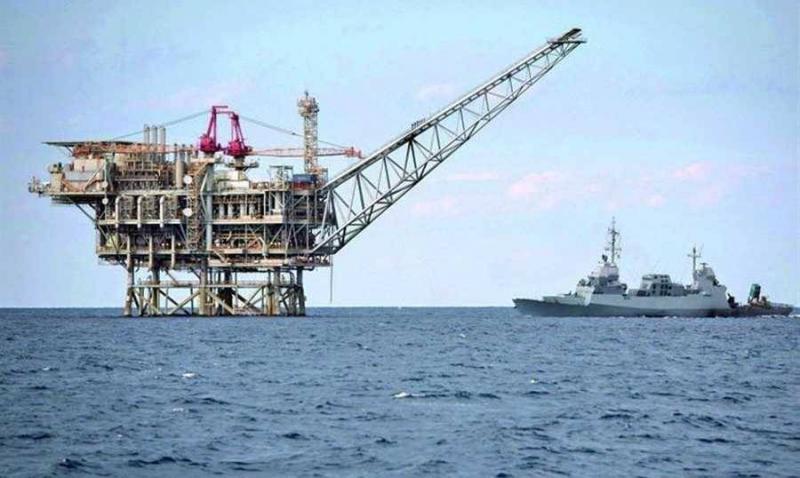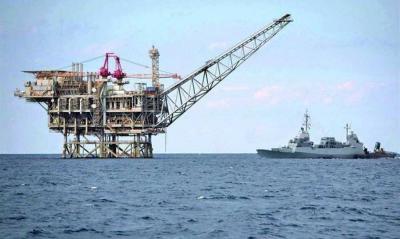Following the signing of the final agreement to demarcate maritime borders between Lebanon and Israel, which came into effect on October 27, it is expected that actual exploration activities will commence during the year 2023. This could mark a turning point for Lebanon's faltering economy, especially since Lebanon has ten blocks that can be contracted and utilized. Regarding the latest developments and preparations for the commencement of exploration at the start of 2023, sources from the Ministry of Energy stated: "To attract companies to work on the remaining eight blocks to benefit from their resources, the deadline for the licensing round has been extended until June 30, 2023. We hope that foreign companies, including American ones, will apply to work in these blocks, particularly since the border demarcation agreement has now become a reality, drawing international attention to exploit Lebanon’s underwater resources. We also strive to contract a significant number of blocks, especially since we lost many years before reaching this result."
The sources point out that the Qatari side will be the third partner for the French company "Total" and the Italian company "Eni" in the consortium. Final procedures and arrangements for the Qatari company are currently underway before the deadline to join, which is January 21, 2023, with Qatar’s share amounting to 30%, while "Total" and "Eni" each hold a 35% share. The sources reveal that after "Total" submitted its work plan, which is now ready, the drilling process is expected to begin at the latest in the final quarter of 2023. They indicate that there is a possibility of starting work before this date if a drilling rig is found, and preparations for the pipes designated to be placed on the seabed are ongoing.
The sources affirm that preparations are progressing rapidly and that the workforce of "Total" will significantly increase in February, including specialized teams. The decision to commence operations from the Port of Beirut has been made, which will serve as a logistical hub for contracting all services related to the drilling process. Regarding the role of the Ministry of Energy and the Oil Sector Authority, the sources note that technical matters are proceeding normally, and there is support from both entities for the drilling process to start as soon as possible, to explore the potential for developing discoveries if gas is found, and to ensure the possibility of utilizing it domestically, especially in power plants.
The sources consider it vital to attract new companies, including American firms such as Chevron and ExxonMobil, which operate in Cyprus and are logically positioned and interested in working in Lebanon. When asked whether the procedures require a cabinet decision, the sources state that all technical and procedural preparations are completely ready and are being monitored by the Oil Authority, indicating that there is no need for cabinet involvement.
Moreover, the sources regard that all current procedures prior to the drilling process are serious, despite being a lengthy process regarding issues like contracting the drilling rig and preparing its specifications. They highlight that the process is moving swiftly in terms of assessing environmental impact, noting that a series of meetings were held to study this matter. Drilling will require environmental preparations and preliminary steps, including site location and sampling from the seabed to assess environmental effects.
The sources express regret over the long time lost by Lebanon before placing the file on the right track, especially since the Oil Sector Authority was appointed ten years ago. However, the prolonged presidential vacancy negatively impacted the matter, while Israel had been preparing for drilling for fifteen years. They also indicate that political disputes have adversely affected the situation, despite the approval of the production and exploration agreement by President Saad Hariri’s government in January 2017.
As for whether the recent attack on the Irish forces operating within UNIFIL could negatively influence foreign companies' entry into Lebanon, the sources mention: "It is known that exploration companies operate in many countries that are considered unsafe, and their situations are more difficult than that of Lebanon. Moreover, companies will be working at sea, so there is no security threat to them or their workers, as such companies conduct security studies before beginning any investment in any country to protect their interests."
Even as Lebanon begins to benefit from its oil production, the financial and economic collapse continues to be significant and alarming, accompanied by an unprecedented escalation in crises on all levels. However, there remains hope that the new year will bring prosperity and relief to Lebanon and its people and serve as a start to emerging from despair.




